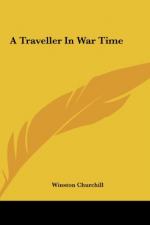One “raid,” which occurred at midday, is worth recording. I was on my way to our Embassy when, in the residential quarter through which I passed, I found all the housemaids in the areas gazing up at the sky, and I was told by a man in a grocer’s cart that the Huns had come again. But the invader on this occasion turned out to be a British aviator from one of the camps who was bringing a message to London. The warmth of his reception was all that could be desired, and he alighted hastily in the first open space that presented itself.
Looking back to the time when I left America, I can recall the expectation of finding a Britain beginning to show signs of distress. I was prepared to live on a small ration. And the impression of the scarcity of food was seemingly confirmed when the table was being set for the first meal at my hotel; when the waiter, who chanced to be an old friend, pointed to a little bowl half-full of sugar and exclaimed: “I ought to warn you, sir, it’s all you’re to have for a week, and I’m sorry to say you’re only allowed a bit of bread, too.” It is human perversity to want a great deal of bread when bread becomes scarce; even war bread, which, by the way, is better than white. But the rest of the luncheon, when it came, proved that John Bull was under no necessity of stinting himself. Save for wheat and sugar; he is not in want. Everywhere in London you are confronted by signs of an incomprehensible prosperity; everywhere, indeed, in Great Britain. There can be no doubt about that of the wage-earners—nothing like it has ever been seen before. One sure sign of this is the phenomenal sale of pianos to households whose occupants had never dreamed of such luxuries. And not once, but many times, have I read in the newspapers of workingmen’s families of four or five which are gaining collectively more than five hundred pounds a year. The economic and social significance of this tendency, the new attitude of the working classes, the ferment it is causing need not be dwelt upon here. That England will be a changed England is unquestionable.




